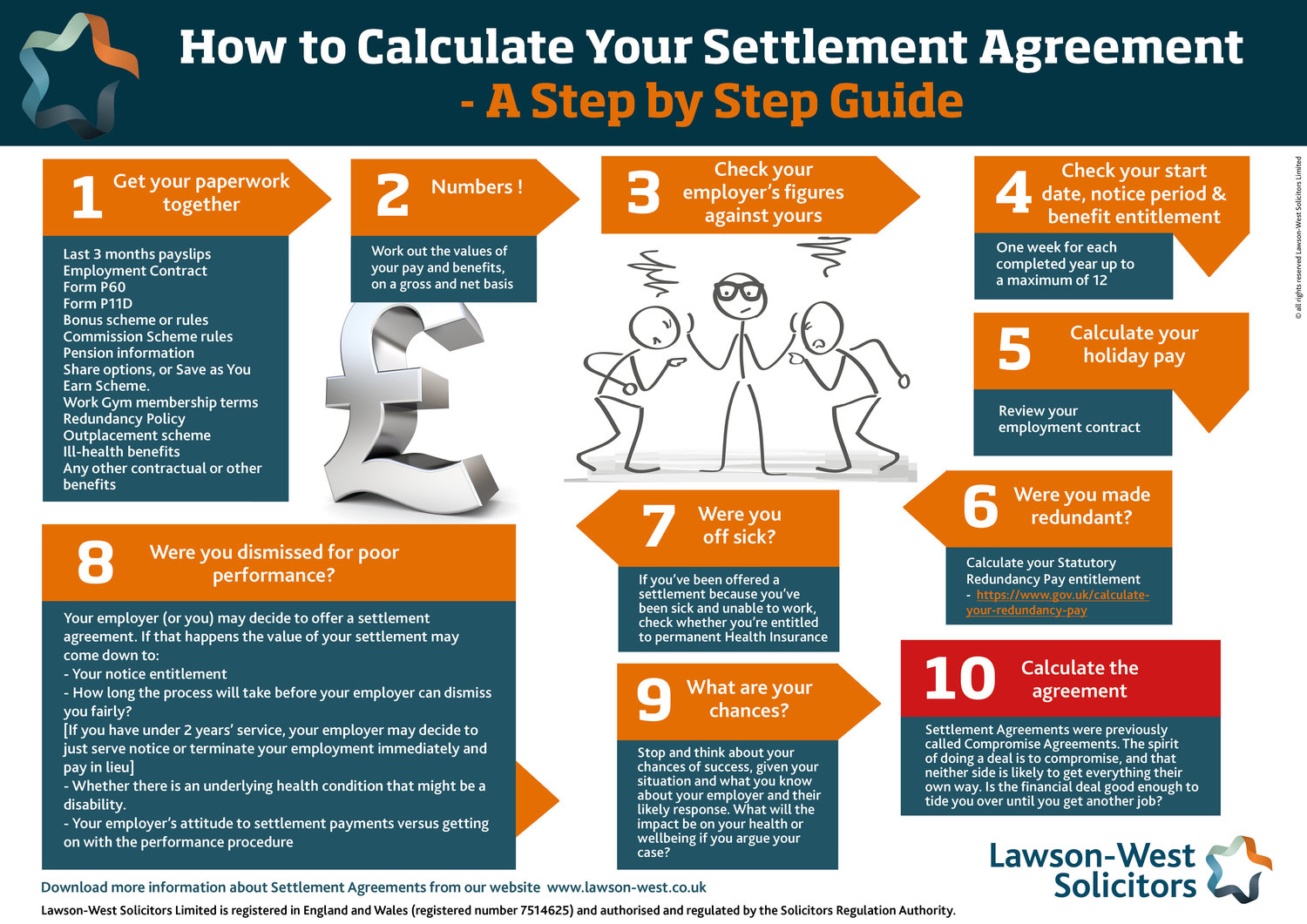Employment: 5 Points to negotiate a favourable Settlement Agreement

Settlement Agreements
If you have been offered a settlement agreement (formerly known as a ‘compromise agreement’) or if you are on the verge of approaching settlement agreement negotiations with your employer, you may be wondering what steps you can take to reach the best possible outcome for you.
There are several strategies you can use to your advantage, in order to strengthen your position and negotiate favourable terms. Here are five things to remember:
1. Instruct a Specialist Settlement Agreement Solicitor
It is a legal requirement to seek independent legal advice before signing a settlement agreement. Our expert settlement agreement solicitors can help you better understand the complexities and practical implications of the terms on offer. We can advise you on any potential risks and pitfalls.
Your employer will almost always offer a financial contribution to your legal costs. The benefits of seeking independent legal advice from Lawson West’s Employment Solicitors, extends beyond us simply ticking a required box. We can also play a crucial role in delivering a successful outcome to negotiations.
You may be aiming to achieve a variety of outcomes, e.g. maximising the financial compensation or getting an agreed future reference and minimising any restrictions (such as restrictive covenants) that follow from the termination of the employment relationship.
Lawson West’s Employment Law Solicitors specialise in settlement agreements and we will be able to advise you on the most suitable strategy for achieving each of your objectives.
2. Make a Counter-Offer
Remember that your employer will often allow for some flexibility during negotiations, which means that their first offer is rarely going to be their final offer. Although some employers may decide to play hardball, it is very rare for an employer to take a deal completely off-the-table just because you try to get a better deal.
You will have a stronger legal protection (therefore more room to negotiate) if you’ve been employed for more than two years. We would help you argue that your potential dismissal or future resignation is likely to be unfair and will amount to an unfair /constructive dismissal. Your two years’ service gives you the right to not be unfairly dismissed which can strengthen your position when negotiating a settlement agreement.
Even without the two years’ service, a wide variety of other claims can still be argued, but this is dependent on the circumstances. Have recent events made you question whether you have been discriminated against or did you raise concerns that would amount to a whistleblowing claim? These types of claims do not require a specific length of service which we could use instead to help you negotiate favourable settlement terms.
3. Avoid Resigning
If you are involved in a dispute, do not resign until you have taken legal advice. Your resignation may negatively impact your negotiating position and depending on the strength of a constructive dismissal claim, you may struggle to achieve a good settlement if you resign.
If you remain in employment, your employer will have to pay you a settlement as an incentive for your employment to end. In most cases where an employee leaves without a settlement, the employer will wait to receive an Employment Tribunal claim from them, before they considering the option of a settlement. This leads to higher costs for everyone involved.
Instead of resigning, raising a formal grievance can help initiate the negotiations relating to a settlement agreement and we can help you write your grievance letter to ensure this includes everything necessary to strengthen your position. If you force your employer to deal with the issues you have complained about (and potentially highlight their failures) this will reinforce your position.
Dealing with grievances can take up significant management time, thus many employers will prefer to progress towards a reaching a conclusion through a settlement agreement.
Even if your employer even ignores your grievance or fails to deal this in the correct manner, this will most likely strengthen your potential claims and increase the level of compensation you might receive.
4. What does your employer want?
In every negotiation each person will put forward their own interests, and negotiations in settlement agreement are the same. Therefore, we can help you consider negotiations from your employer’s viewpoint.
Your employer may want from you to agree to a clean and easy termination, including ensuring you help in giving a handover. This can also allow them to make an agreed announcement to your colleagues and customers regarding how to explain you leaving their business. Your employer will also want to put restrictions on who can speak you about the matters that have taken place. Therefore, agreeing to these as conditions of the agreement can help you getting the settlement terms you deserve and want from your employer in exchange.
5. Being Realistic and Pragmatic
Taking a realistic approach can maximise chances of getting the best settlement from your employer.
If you try to get a settlement that is higher or even similar to the outcome you would want to receive from an Employment Tribunal, this is unlikely to help negotiations. Taking this approach will most likely result in your employer being happy to defend any claim you make against them as it may be less expensive for them to do this instead.
Instead most employers look to achieve potential savings as part of the settlement they give to you. We can help you in negotiations by highlighting to your employer, how they will be saving time, legal costs, reputational damage or having to pay increased compensation if you were awarded this by a Judge, in comparison to what you are asking for now in a settlement agreement.
See also our helpful Guide to Calculate Settlement Agreements:
Our Specialist Settlement Agreement Solicitors are available to provide the appropriate advice and guidance in relation to any aspect of settlement agreements or employment law.
Please contact us on Tel: 0116 212 1000 or 01858 445 480, alternatively complete the free Contact Us form here and we will get in touch as soon as possible.
View all



